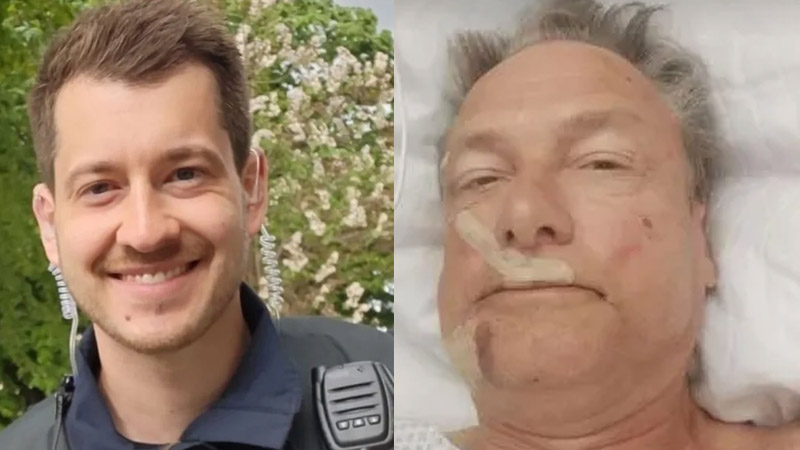Terrorist Who Killed German Cop Shows No Remorse After Waking from Coma

Credit: visegrad24
The terrorist who fatally stabbed a German police officer during a frenzied knife attack last month has expressed no regrets after waking from an induced coma. Sulaiman Ataee, 25, launched a brutal assault on 29-year-old officer Rouven Laur at an anti-Islam rally in Mannheim on May 31, stabbing him multiple times in the head and neck.
Horrifying footage captured on a YouTube livestream showed Ataee wielding a large knife as he lunged at far-right activist Michael Stürzenberger and four bystanders before targeting Laur. The critically injured officer was rushed to the hospital for emergency surgery. Despite doctors’ efforts, he succumbed to his injuries two days later.
Ataee was reportedly neutralized by police gunfire during the incident. Although BILD initially reported that he was dead, it has now been confirmed that Ataee survived and has been in a coma at Theresienkrankenhaus Hospital in Mannheim since the attack.
An insider claims that Ataee has awakened from his coma and has been behaving “very rudely” to hospital staff, showing no remorse for his actions. The insider told BILD, “He does not appear to regret his actions. He is very rude to the staff and demands to be discharged from the hospital.”
They told MailOnline: Ataee is also suffering from leg paralysis caused by surgery to remove a police bullet from his abdominal aorta. “Even after he was brought out of the artificial coma, he could no longer feel his left leg,” the insider said. “His leg was probably injured during the difficult operation to remove the police bullet. But it is a miracle that the doctors managed this dangerous operation so well.”
Currently, Ataee remains in intensive care, under constant guard by two police officers. His future actions remain uncertain as authorities determine the next steps. The Federal Prosecutor’s Office has taken over the investigation and concluded that Ataee was a radical lone perpetrator who resorted to massive violence to prevent criticism of Islam.
Ataee, who came to Germany from Afghanistan in 2015, had been living with his wife and two children in Heppenheim. A neighbor described his recent radicalization, saying, “He used to be normal. Recently, about a year ago, I noticed that he had changed. He was helpful before, but then suddenly he turned cold. He suddenly became more reserved—and also more aggressive.” As the investigation continues, the community grapples with the shock and horror of the attack, and the implications of Ataee’s radical transformation.


